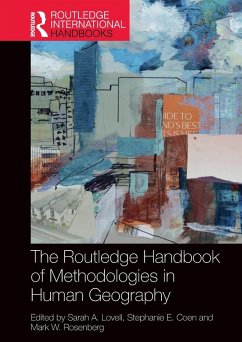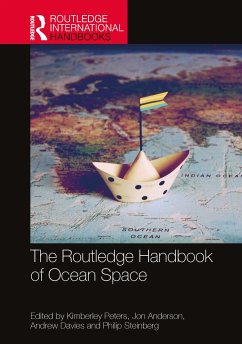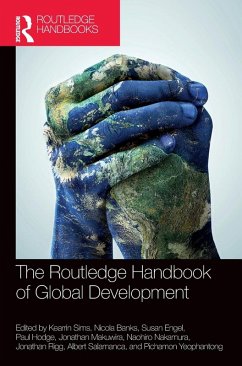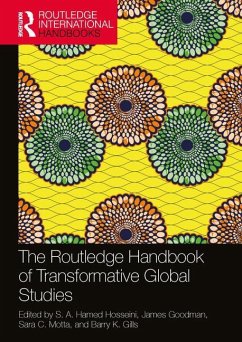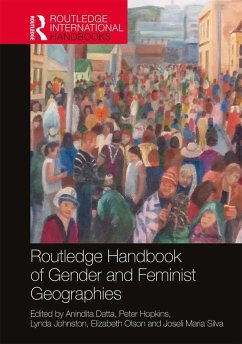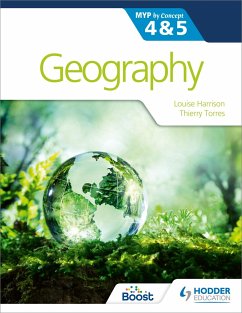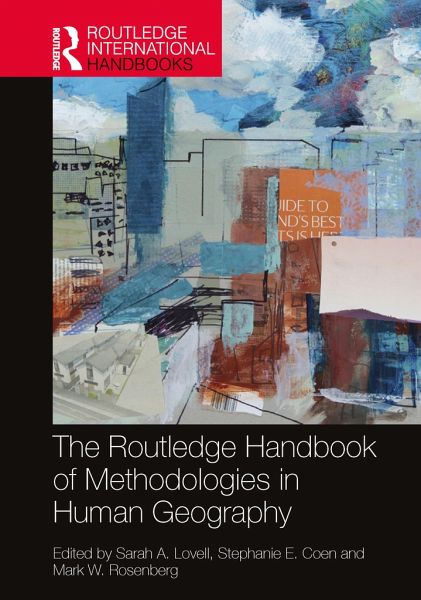
The Routledge Handbook of Methodologies in Human Geography
Versandkostenfrei!
Versandfertig in 6-10 Tagen
223,99 €
inkl. MwSt.
Weitere Ausgaben:

PAYBACK Punkte
112 °P sammeln!
The Routledge Handbook of Methodologies in Human Geography is the defining reference for academics and postgraduate students seeking an advanced understanding of the debates, methodological developments and methods transforming research in human geography.Divided into three sections, Part I reviews how the methods of contemporary human geography reflect the changing intellectual history of human geography and events both within human geography and society in general. In Part II, authors critically appraise key methodological and theoretical challenges and opportunities that are shaping contemp...
The Routledge Handbook of Methodologies in Human Geography is the defining reference for academics and postgraduate students seeking an advanced understanding of the debates, methodological developments and methods transforming research in human geography.
Divided into three sections, Part I reviews how the methods of contemporary human geography reflect the changing intellectual history of human geography and events both within human geography and society in general. In Part II, authors critically appraise key methodological and theoretical challenges and opportunities that are shaping contemporary research in various parts of human geography. Contemporary directions within the discipline are elaborated on by established and emerging researchers who are leading ontological debates and the adoption of innovative methods in geographic research. In Part III, authors explore cross-cutting methodological challenges and prompt questions about the values and goals underpinning geographical research work, such as: Who are we engaging in our research? Who is our research 'for'? What are our relationships with communities?
Contributors emphasize examples from their research and the research of others to reflect the fluid, emotional and pragmatic realities of research. This handbook captures key methodological developments and disciplinary influences emerging from the various sub-disciplines of human geography.
Divided into three sections, Part I reviews how the methods of contemporary human geography reflect the changing intellectual history of human geography and events both within human geography and society in general. In Part II, authors critically appraise key methodological and theoretical challenges and opportunities that are shaping contemporary research in various parts of human geography. Contemporary directions within the discipline are elaborated on by established and emerging researchers who are leading ontological debates and the adoption of innovative methods in geographic research. In Part III, authors explore cross-cutting methodological challenges and prompt questions about the values and goals underpinning geographical research work, such as: Who are we engaging in our research? Who is our research 'for'? What are our relationships with communities?
Contributors emphasize examples from their research and the research of others to reflect the fluid, emotional and pragmatic realities of research. This handbook captures key methodological developments and disciplinary influences emerging from the various sub-disciplines of human geography.





